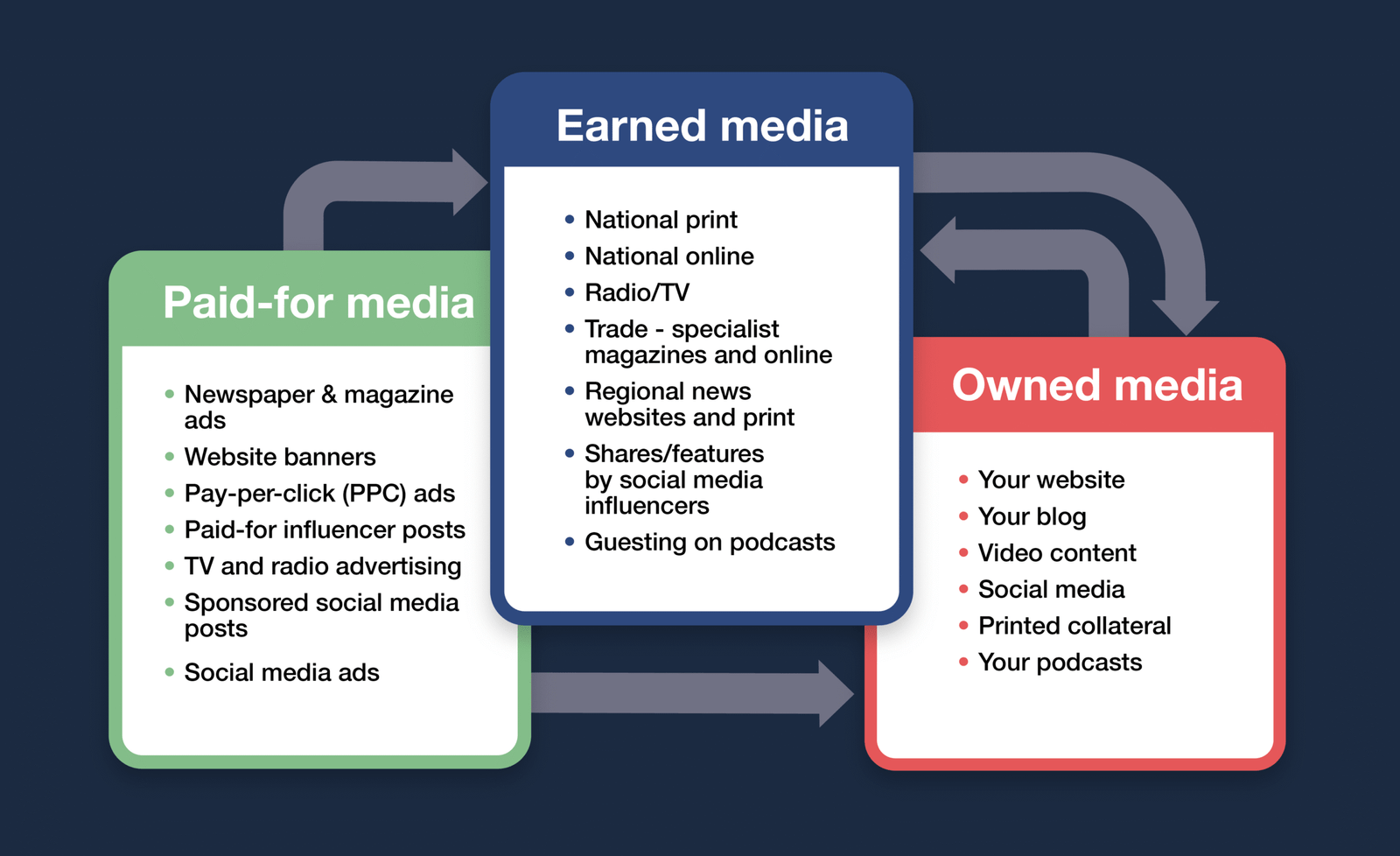
From Ranking to Deranking: The Role of PR Coverage and Earned Media in SEO
You know, the internet feels different these days. It’s not just me, right?
I remember when you could publish an article, sprinkle a few backlinks here and there, and boom you’d climb the rankings like a kid on a jungle gym. It was messy, a little hacky, but it worked. Fast forward to now… and even good sites with real stories, real voices, are watching their rankings slide down like sand slipping through fingers.
And the funny thing is, some of the folks getting hit aren’t spammers or keyword stuffers. They’re legit brands, writers, journalists. People who’ve put their heart into their craft. So, what’s going on? Why does a site that once basked in page-one glory suddenly find itself in Google’s basement?
The answer, or at least part of it, circles back to something old but shiny again: PR coverage and earned media.
When Rankings Fall, It Hurts
Let’s be real for a second.
When your site drops in rankings, it’s not just a “SEO issue.” It feels personal. You log into Search Console, you see those impressions tanking, and your stomach knots. Like, what did I do wrong?
I once worked with a small business owner who had a simple blog about sustainable living. For years, she ranked top 3 for “eco-friendly kitchen tips.” Then one day poof down to page 5. She hadn’t changed anything. She was still posting thoughtful content. But her competitors? They had features in niche magazines, shoutouts from local TV stations, and mentions in community forums.
Her content was fine. But her reputation? Practically invisible.
And that’s the brutal truth: Google doesn’t just care about what you write anymore. It cares about who else is talking about you.
The Flood of Content Nobody Asked For
Here’s the thing: the web’s drowning.
AI-generated posts, half-baked affiliate reviews, shallow “top 10” lists. Every search query now spits out dozens of cookie-cutter pages that look eerily alike. And Google, well, they had to do something.
So, they rolled out updates the Helpful Content Update, core updates, the whole nine yards. Their goal? To filter noise and reward voices with trust.
But trust isn’t built in isolation. You can write the smartest guide on “how to brew coffee,” but if no one reputable is pointing at you, it’s like whispering into the void. That’s where PR coverage and earned media sneak back into the picture. They act like a spotlight in the middle of the noise.
What Even Is Earned Media?
Let’s break it down, but not in a textbook-y way.
Earned media is basically everything you didn’t pay for directly:
- A journalist mentioning your product in an article.
- Someone tweeting about your research.
- A podcast host dropping your name in conversation.
It’s not an ad. It’s not a sponsored post. It’s… credibility.
Funny enough, I remember when my buddy launched a fitness app. He spent thousands on ads Google, Facebook, TikTok. Lots of clicks, barely any loyal users. But then, a fitness blogger reviewed his app (for free, just because she liked it). That single blog post sent more sign-ups than months of paid ads. And those users stuck around. Why? Because someone else vouched for him.
That’s the real juice of earned media. It carries a weight money can’t fully buy.
Why PR Coverage Matters More Than Ever in SEO
Here’s where it gets interesting. Google’s algorithms may be machine-driven, but they’re obsessed with human signals. And PR coverage checks almost every box Google craves:
- Authority – A Forbes or niche industry mention tells Google, “Hey, this brand isn’t some basement blog.”
- Diversity – Backlinks from different sources look way more natural than 50 guest posts on random sites.
- Freshness – Media coverage often comes with dates, which signal relevance.
- Engagement – People click, share, and talk about media mentions.
Think of it like this: backlinks are the currency, but PR coverage is the endorsement. Not all links are created equal.
And if you’re wondering whether Google notices the difference oh, it does. A New York Times mention isn’t the same as a link from “best-garden-tools-101.xyz.”
The Emotional Rollercoaster of PR in SEO
But let me be honest it’s not all glamorous.
Chasing PR can feel like standing outside a club in the rain, waiting for the bouncer to notice you. You pitch journalists, you write press releases, you hope someone cares. Sometimes they don’t.
And yet… when they do, the ripple effect is wild. Suddenly, competitors who’ve been outranking you start sliding down. Your site feels alive again. People find you, trust you, and maybe even buy from you.
It’s like the SEO gods finally smiled your way.
Stories Google Believes (and So Do People)
Here’s a small but important point: Google doesn’t just want facts it wants stories backed by signals.
Think about two brands selling skincare. One posts product descriptions stuffed with “organic,” “natural,” “glow.” The other? They get profiled in a local paper about how they partner with farms, or a dermatologist mentions them in an interview.
Which one feels more real to you? Exactly.
Google’s trying to mimic that gut instinct. It wants to rank the brand that people outside the website are also talking about.
The Trap of Chasing Shortcuts
You might laugh, but I’ve seen people try to “fake” earned media. Like paying for placements that pretend to be organic mentions. For a hot second, it works. But eventually, the algorithm catches on.
Truth be told, shortcuts in SEO are like crash diets. They promise quick results, but the rebound can wreck you. And when deranking hits, it hits hard.
So if you’re thinking about building PR coverage as part of your SEO strategy play the long game. Get genuine mentions. Share stories people want to repeat.
How to Actually Earn Media Without Selling Your Soul
Alright, let’s get practical.
If you’re wondering how to tap into earned media, it’s less about being perfect and more about being real. A few ideas:
- Tell your story. Journalists love angles. Did you start your business out of a garage? Did your grandma inspire your product? Say it.
- Be useful. Offer insights, data, or tools that others can reference. A good study can earn links for years.
- Network sideways. Don’t just chase top outlets. Smaller, niche communities can give you mentions that pack surprising power.
- Show up consistently. One press hit won’t change your life. Ten over time? Different game.
And yeah, sometimes you’ll feel like you’re shouting into the void. But keep at it. Because one day, that shout turns into an echo.
The Messy Dance Between Google and Reputation
This whole ranking vs. deranking thing is messy because Google doesn’t see your heart. It only sees signals. If people respect you enough to talk about you, cite you, or cover you you’re golden.
But if you stay invisible outside your own site? You risk sliding down the ranks, no matter how pretty your blog posts look.
It’s not always fair. Life rarely is. But it’s the game we’re in.
Quick Table: PR Coverage vs. Earned Media in SEO
Here’s a messy little table I sketched in my notes. Not perfect, but it shows the difference:
| Aspect | PR Coverage | Earned Media |
| Definition | Planned campaigns, press releases, interviews | Organic mentions, reviews, word-of-mouth |
| Control | Somewhat you pitch, you guide the story | Nope, people talk how they want |
| Speed of Results | Faster if you land big coverage | Slower, but often more lasting |
| SEO Impact | Strong brings authority backlinks & trust | Strong too natural signals, high credibility |
| Longevity | Depends on outlet, often temporary buzz | Can live for years if links keep getting used |
| Cost | Often expensive (PR agencies, campaigns) | Mostly time and effort, less cash |
Funny thing is… most brands chase PR like it’s the shiny prize, but earned media often has the legs to keep running long after the campaign’s over.
FAQs: Stuff People Keep Asking
Does PR really affect SEO rankings?
Yeah, it does. Not in a direct “press release = #1 ranking” kind of way, but through the authority, backlinks, and visibility it generates. Google sees credible sources pointing to you, and that’s gold.
Which is better PR coverage or earned media?
Honestly? Both. PR can give you a quick splash. Earned media gives you depth and staying power. Think of PR as fireworks and earned media as a campfire.
Can I fake earned media with paid placements?
You can, but it’s risky. Google’s algorithms are sharp, and if they catch on, you’ll tank. Plus, readers can smell fake hype a mile away.
What’s the easiest way to get earned media if I’m just starting?
Tell your story in small circles first. Local bloggers, niche forums, even community newsletters. Don’t underestimate the ripple effect of small but genuine mentions.
Is this all really worth the hassle?
Depends. If you want to play the SEO game long-term and not keep fighting deranking every update, yeah it’s worth it. Because at the end of the day, trust is heavier than traffic spikes.
Final Reflection
At the end of the day, SEO isn’t just about algorithms or backlinks or even keywords. It’s about reputation.
PR coverage and earned media are like whispers that turn into shouts. They tell both people and Google, “This voice matters.”
And when rankings fall because they sometimes will those whispers might be what pulls you back up.
I guess what I’m really saying is this: don’t just chase traffic. Chase trust. Because when the dust settles, trust is the only thing that keeps your name standing.
And you’ll want to look back someday and think, yeah, I built something worth talking about.





